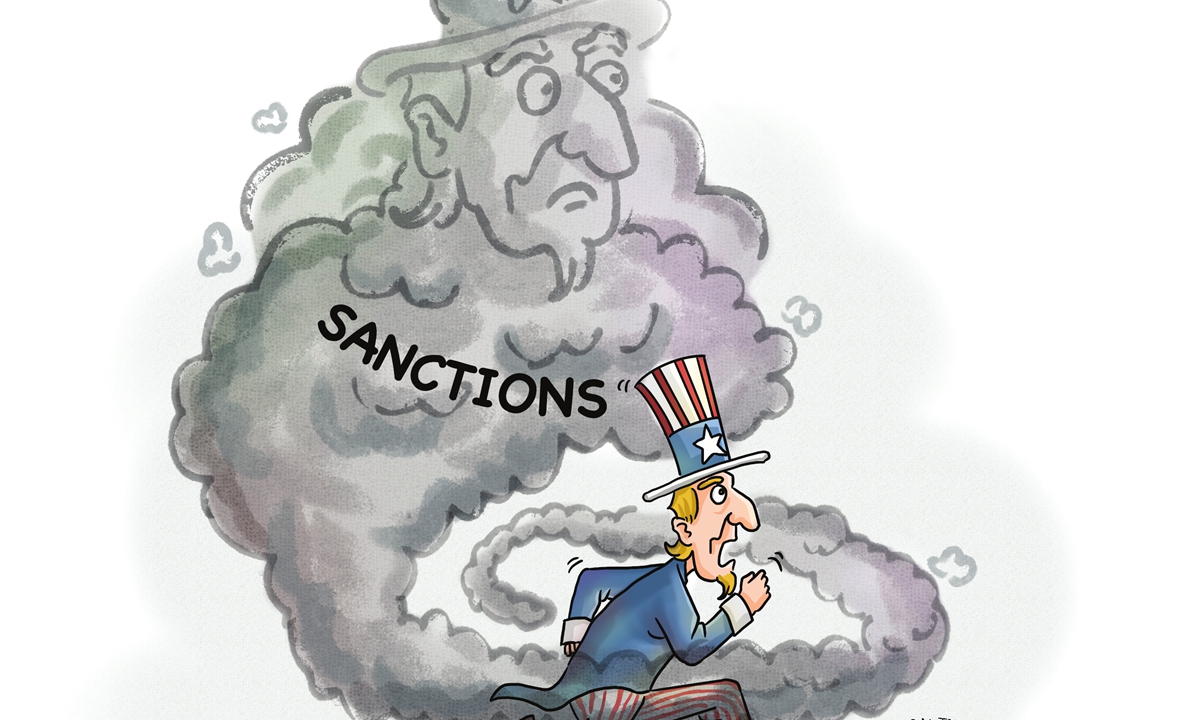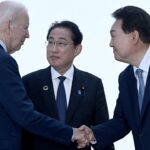Washington has held a hegemonic position for the better part of 80 years. Yes, some of what America has done with that privilege has been good, but there is a lengthy history of using power for the wrong purposes.
The increasing use of economic sanctions is one example of compounding one mistake on top of another. For too many Americans, such efforts look like a sound use of power: Instead of sending the military to some far-off land, the US opts to levy penalties on a country (or, more narrowly, specific people within a country) so that the offending nation will get in line with Washington’s aims. Unfortunately, America’s politicians do not want to admit that sanctions policies rarely succeed: They almost never harm the leadership of that offending country, but instead, make the already difficult lives of private citizens even harder. They can also backfire and make life more challenging for American citizens.
Iraq offers one example of sanctions going off the rails with deadly consequences. Granted, this might be considered a bad example because the US eventually chose to declare war on the country, and the horrors of that escapade have been well documented. Throughout the 1990s, Washington convinced itself that sanctions would guarantee that Iraqi President Saddam Hussein would stop being America’s pain in the neck. The liberal magazine The Nation discussed what actually happened in Iraq. In 1999, it reported, “Voices in the Wilderness, an antisanctions activist group based in Chicago, has used the figure of 1 million children dead from the sanctions; the Iraqi government claims 4,000-5,000 deaths per month of children under five. Even US Secretary of State Madeleine Albright does not contest how great the human damage has been…”
Human carnage on that scale can never align with the idea of America being a nation that endorses human rights.
Nevertheless, the economic sanctions train was rolling, and one US president after another bought into the naive idea that sanctions would work. As a result, one country after another, among them Afghanistan, Iran, Russia, Venezuela, and, yes, China, has been on the receiving end over the past couple of decades. Finally, in 2018, the French foreign minister asked why it was appropriate for the US to remain the “economic policeman of the planet.”
It has been appropriate for roughly eight decades because the US has said so, and that attitude has not served the world well. However, as America’s hegemony continues to erode, so too will global tolerance for kowtowing to America’s often dangerous pursuits.
Istvan Dobozi, a former lead economist at the World Bank, recently sent a letter to the editor of the Washington Post about economic sanctions. In it, he stated, “Washington’s fixation with sanctions has little to do with their efficacy and everything to do with relative global American decline. No longer an unchallenged superpower, the US can’t throw its weight around as it used to.”
There it is: The US is no longer the bully. The rise of China and by extension the return of Asia to a position of global power ensures America’s recent history will be scrutinized. There is no question that since the end of World War II, reckless wars in Asia, the Middle East and South Asia have tarnished the American myth of being a force for good here, there and everywhere. On top of that, the CIA’s interference in elections across the globe – there are 81 known examples that took place between 1946 and 2000 alone – neuters America’s argument that it supports free and fair elections no matter where they are happening. Finally, the use of organizations such as the aforementioned World Bank to further its own interests erodes confidence in the US being an honest broker in supporting international development.
For now, the US persists in the belief that it can use economic sanctions as a means to an end. Arrogance is part of the reason. Washington politicians are encased in the bubble that surrounds the nation’s capital. As a result, they are smug. They have little doubt that they are fighting the good fight. Working together, the political and media elites maintain that any nation that dares to defy the US must face some sanction. Ignorance also explains this persistence. Clinging to the notion that America is THE beacon of freedom and liberty in the world ensures that America’s elites believe the world is desperate for those virtues to be displayed (all the while freedom and liberty are regularly denied to its poor and its minorities).
A final thought: The US has maintained sanctions against Cuba for more than 60 years. The intent? To convince Cubans to rise up and overthrow Communism. That has not happened. And there is no sign it will. Refusing to end failing policies is hubris. America needs to wise up.
The author is an associate professor at the Department of Communication and Organizational Leadership at Robert Morris University. opinion@globaltimes.com.cn













